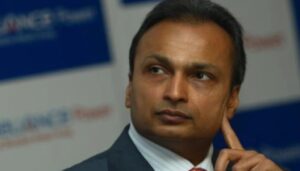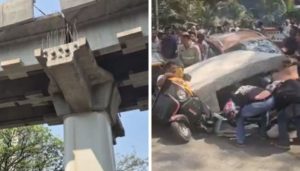Uddhav Thackeray Unveils Manifesto, Promises Major Reforms for Mumbai

Mumbai, 8th November 2024: On Thursday, Uddhav Thackeray, the leader of Shiv Sena (UBT), unveiled his party’s manifesto for the Maharashtra assembly elections, promising significant changes if the party comes to power. Thackeray vowed to build a new International Finance Centre (IFC) in Dharavi and cancel the controversial redevelopment project, which has been awarded to the Adani Group, a move he said would be in the best interests of the people.
Thackeray also announced plans to reinstate the old pension scheme for government employees, reversing the Maharashtra cabinet’s approval of the central government’s Unified Pension Scheme. He pledged free education for male students, aligning with the policy that already benefits female students, and promised free public transport for women.
The former chief minister also committed to restarting the Shiv Bhojan subsidized meal scheme for the underprivileged. Additionally, he vowed to construct a temple dedicated to Maratha king Chhatrapati Shivaji Maharaj in every district of Maharashtra if the Maha Vikas Aghadi (MVA) alliance, which includes Shiv Sena (UBT), returns to power.
At a media event following the release of the manifesto, called Vachan Nama, at his residence, Matoshree, Thackeray clarified that the MVA would release a joint manifesto later this week. He emphasized that the party’s promises were based on past commitments, saying, “We have a tradition of fulfilling our promises, and we are doing so with the same determination.”
Thackeray elaborated on his plans for Dharavi, where the Adani Group is leading a multi-crore redevelopment project. He promised to cancel the allocation of land parcels for the project and provide affordable housing within Dharavi for residents. “We will scrap the land deals with Adani and build one lakh affordable homes for the people of Mumbai,” the manifesto states. The party also aims to provide five lakh homes in the Mumbai Metropolitan Region.
A key promise was the creation of an International Finance Centre in Dharavi, which was initially proposed by the Bharatiya Janata Party (BJP) and the undivided Shiv Sena alliance in 2015 but was never implemented. Thackeray highlighted the importance of creating jobs to tackle rising unemployment and pledged to prioritize employment generation through the IFC.
The manifesto also includes a new policy for slum redevelopment in major cities like Solapur, Pune, Kolhapur, and Chhatrapati Sambhaji Nagar. Thackeray assured that the Mahalakshmi Racecourse land would remain an open space, opposing plans to convert part of it into a central park.
To gain support from Mumbai’s fishing community, Thackeray promised to annul a government order on cluster development in koliwadas (fishing villages), ensuring redevelopment based on the community’s needs.
Thackeray also reiterated five previous promises, including free education for boys, affordable housing for Marathi people in MMR, all-women police stations, guaranteed crop prices for farmers, and stabilizing prices of essential goods such as sugar, pulses, oil, wheat, and rice.
Additional promises included health insurance worth ₹25 lakh for each family in Maharashtra, increased honorariums for Asha and Anganwadi workers, and the recruitment of 18,000 women into the state police force.
The Shiv Sena (UBT) manifesto was released a day after the MVA coalition, which includes Congress and the Nationalist Congress Party (NCP), also unveiled several promises, such as ₹3,000 monthly assistance for underprivileged women and ₹4,000 for unemployed youth.
In response to the manifesto launch, BJP state president Chandrashekhar Bawankule criticized Thackeray for unveiling it from his home rather than the Shiv Sena headquarters. “Uddhav Thackeray, who spent two and a half years doing Facebook live from home, continues to release party documents from home. Unlike Balasaheb Thackeray, who prioritized Maharashtra’s interests, Uddhav only focuses on his family’s interests,” Bawankule said.




